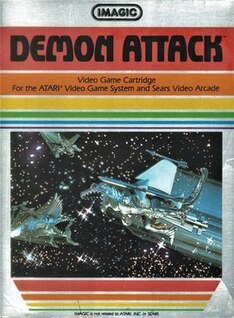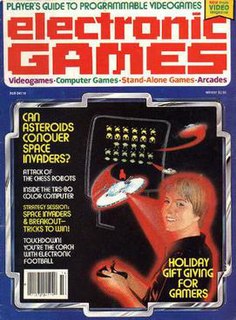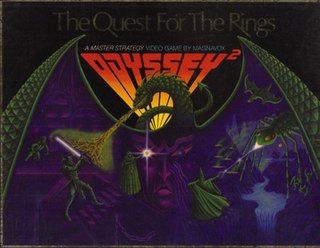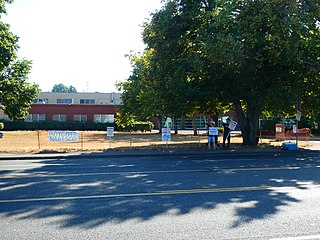
Scooby-Doo is an American animated media franchise based on an animated television series launched in 1969 and continued through several derivative media. Writers Joe Ruby and Ken Spears created the original series, Scooby-Doo, Where Are You!, for Hanna-Barbera Productions. This Saturday-morning cartoon series featured teenagers Fred Jones, Daphne Blake, Velma Dinkley, and Shaggy Rogers, and their talking Great Dane named Scooby-Doo, who solve mysteries involving supposedly supernatural creatures through a series of antics and missteps.

Nabisco is an American manufacturer of cookies and snacks headquartered in East Hanover, New Jersey. The company is a subsidiary of Illinois-based Mondelēz International.

Cream of Wheat is an American brand of farina, a type of breakfast porridge mix made from wheat middlings. It looks similar to grits, but is smoother in texture since it is made with ground wheat kernels instead of ground corn. It was first manufactured in the United States in 1893 by wheat millers in Grand Forks, North Dakota and debuted at the 1893 World's Columbian Exposition in Chicago, Illinois.

Galaxian is a 1979 fixed shooter arcade game developed and published by Namco. The player assumes control of the Galaxip starfighter in its mission to protect Earth from waves of aliens. Gameplay involves destroying each formation of aliens, who dive down towards the player in an attempt to hit them.

A sundae is an ice cream dessert of American origin that typically consists of one or more scoops of ice cream topped with sauce or syrup and in some cases other toppings such as: sprinkles, whipped cream, marshmallows, peanuts, maraschino cherries, or other fruits.

Demon Attack is a fixed shooter written by Rob Fulop for the Atari 2600 and published by Imagic in 1982. It was ported to the Intellivision, Magnavox Odyssey 2, Atari 8-bit family, VIC-20, Commodore 64, Tandy 1000, TRS-80, IBM PCjr, and TRS-80 Color Computer. There is also a port for the TI-99/4A titled Super Demon Attack.
Fueled by the previous year's release of the colorful and appealing Pac-Man, the audience for arcade games in 1981 became much wider. Pac-Man influenced maze games began appearing in arcades and on home systems. Pac-Man was again the year's highest-grossing video game for the second year in a row. Nintendo released the arcade game Donkey Kong, which defined the platformer genre. Other arcade hits released in 1981 include Defender, Scramble, Frogger, and Galaga. The year's best-selling home system was Nintendo's Game & Watch, for the second year in a row.
Twin Galaxies is an organization and social media platform for people involved in the culture and activity of playing video games. It facilitates their interaction as well as their competition and recognizes their achievements.

A.1. Sauce is a brand of brown sauce produced by Brand & co, a subsidiary of Premier Foods in the United Kingdom and in North America by Kraft Heinz. Sold from 1861 as a condiment for meat or game dishes in the United Kingdom, the makers introduced the product to Canada, and later to the U.S. where it was marketed as a steak sauce. A.1. sauce is still produced in England and exported to Asia. In May 2014, Kraft Foods announced it was dropping the word "steak" from the A.1. name, reverting to A.1. Sauce, to "reflect modern dining habits". Although the sauce is widely available in the U.S. and Canada, in the UK it is currently sold only by Tesco, Costco and Ocado.

Electronic Games was the first dedicated video game magazine published in the United States and ran from October 15, 1981 to 1997 under different titles. It was co-founded by Bill Kunkel, Joyce Worley, and Arnie Katz..

Zabar's is an appetizing store at 2245 Broadway and 80th Street, on the Upper West Side of Manhattan in New York City, founded by Louis Zabar and Lillian Zabar. It is known for its selection of bagels, smoked fish, olives, and cheeses.

Astro Chase is a multidirectional shooter written by Fernando Herrera for the Atari 8-bit family. It was published by First Star Software in 1982 as the company's first game. Parker Brothers licensed it, releasing cartridge versions for the Atari 8-bit family and Atari 5200 console in 1983 and a Commodore 64 version in 1984. Exidy licensed it for arcade use with its Max-A-Flex cabinet.

Megamania is an Atari 2600 game by Steve Cartwright and published by Activision in 1982. Versions were released for the Atari 5200 and Atari 8-bit family in 1983. Megamania is similar to Sega's 1981 arcade title Astro Blaster. Both games have nearly identical patterns of approaching enemies with the player relying on an "energy" meter. The player's ships are remarkably similar in both games.
Bill Kunkel was a graphic novelist as well as pioneering professional wrestling and video game journalist and critic from the 1970s until his death in the early 2010s. During his time working with the video game industry, Kunkel authored numerous strategy guides, co-designed several video games, served as an expert witness in three court cases, and taught courses in Game Design for the University of Nevada, Las Vegas (UNLV). Kunkel served as the executive editor of Electronic Games Magazine and the editor-in-chief of Tips & Tricks magazine, writing columns and comics for several magazines and game sites. He often wrote under nicknames, the most common of which were "The Game Doctor", and "Potshot".

A banana split is an American ice cream-based dessert consisting of a peeled banana cut in half lengthwise, and served with ice-cream and sauce between the two pieces. There are many variations, but the classic banana split is made with three scoops of ice cream. A sauce or sauces are drizzled onto the ice cream, which is topped with whipped cream and maraschino cherries. Crushed nuts are optional.
Heublein Inc. was an American producer and distributor of alcoholic beverages and food throughout the 20th century. During the 1960s and 1970s its stock was regarded as one of the most stable financial investments, earning it inclusion in the Nifty Fifty.

Quest for the Rings is a board game/video game hybrid for the Magnavox Odyssey². It is the first game in the Odyssey² "Master Strategy Series", and contemporary reviews described it as innovative.

Video is a discontinued American consumer electronics magazine that was published from 1977 to 1999 by Reese Communications with a focus on video and audio devices. The magazine showcases new audiovisual products, analyzes current practices and trends in the field, and provides critical reviews of newly marketed products and equipment. During its early years, it competed fiercely with contemporary journals like Video Review and Video Buyer's Review—ultimately culminating in a 1980 trademark infringement suit over use of the term "Video Buyer's Guide". In March 1995, Video was acquired from Reese by Hachette Filipacchi, and in 1999 it was merged with their bi-monthly Sound & Image magazine to become Sound & Vision.

A bodega is a small owner-operated convenience store serving hot and prepared food, often open late hours and typically with ethnic market influences. Most famously located on New York's street corners as an introduction by Puerto Ricans in New York City, they are renowned for their convivial culture and colorful character. There are an estimated 13,000 bodegas across the city.

The 2021 Nabisco strike was a labor strike involving workers for the American snack manufacturer Nabisco, a subsidiary of Mondelez International. The strike began at a Nabisco facility in Portland, Oregon on August 10 and over the next few days spread to several more Nabisco facilities throughout the United States.















